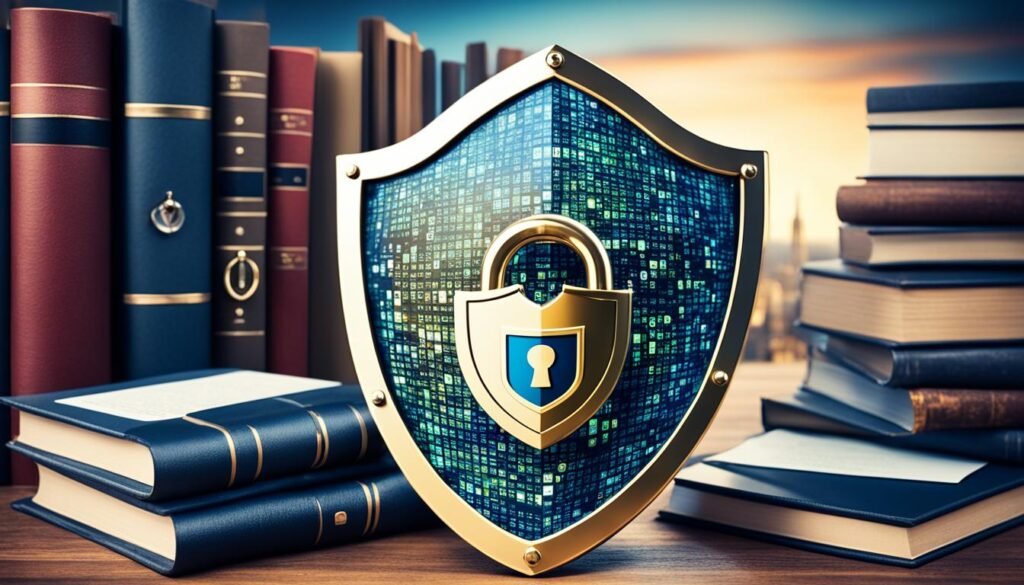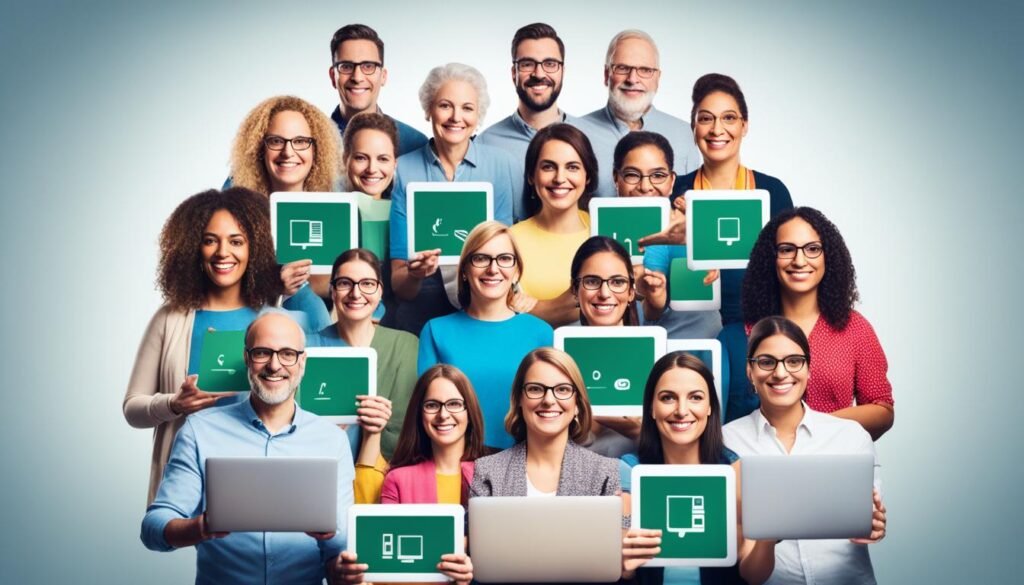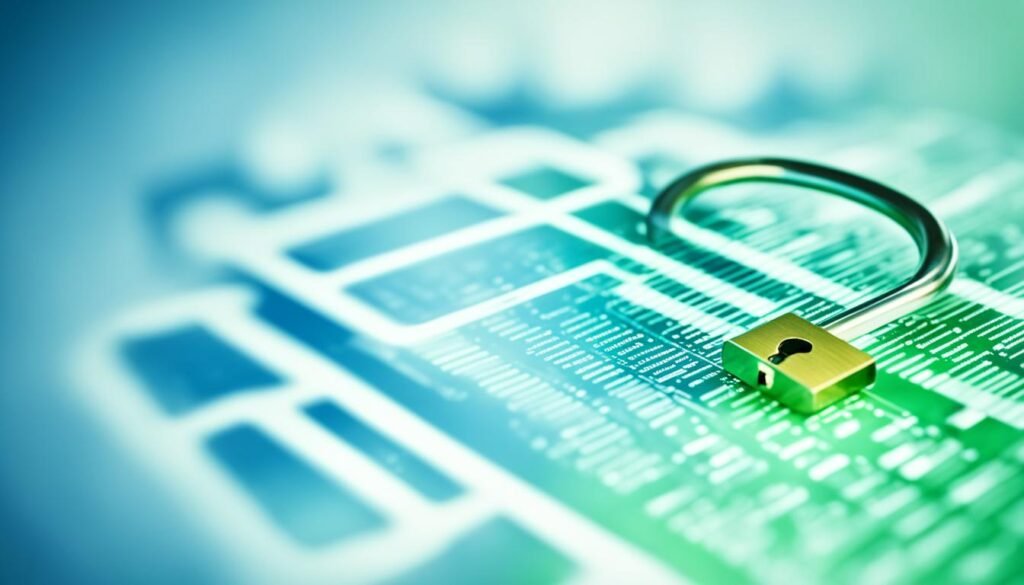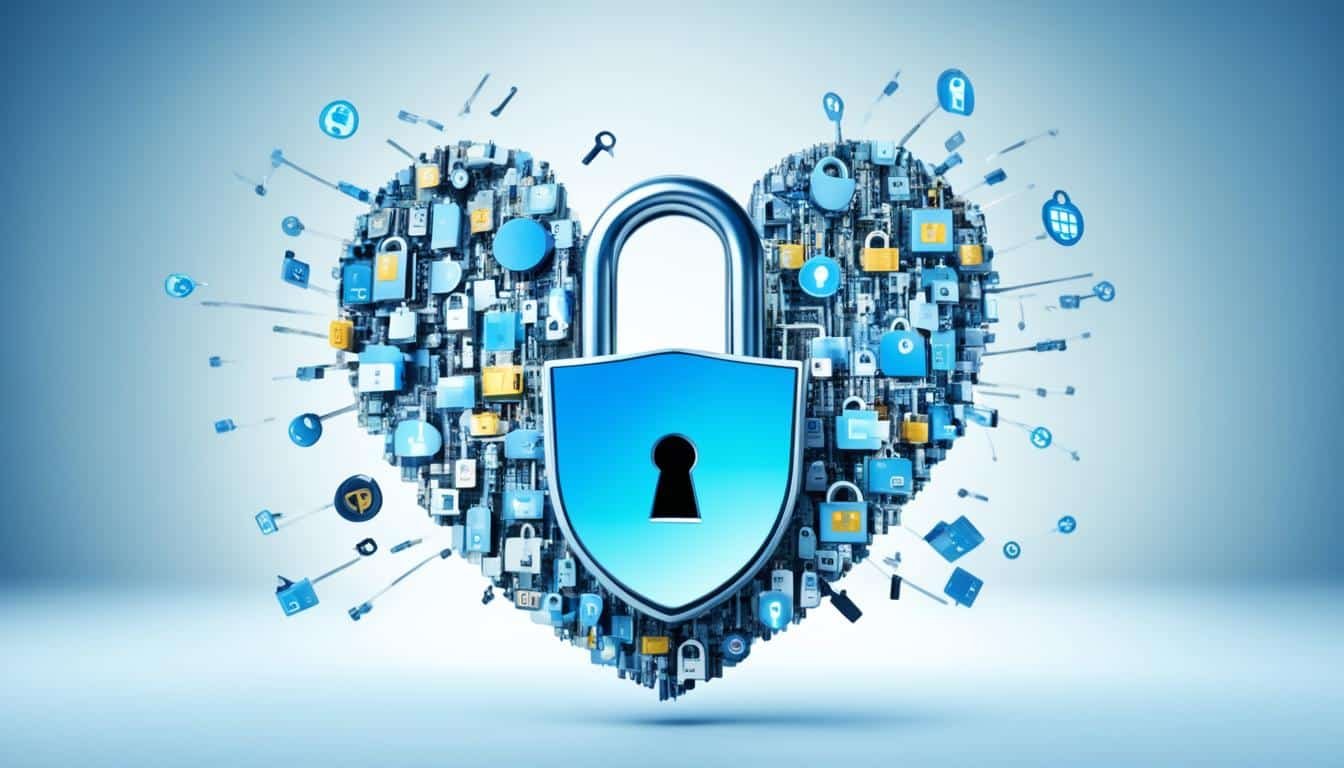Legal Rights In today’s digital world, laws must keep up to protect our basic rights. These digital rights are closely tied to our freedom to speak and keep things private. They let us go online, use it, make stuff, share it, and connect through devices and networks. These rights are like an update to our basic human rights, meant for the web age.
Also Read: The Litigation Process: From Filing To Verdict
As technology moves forward, we need new rules to keep it all fair. With 5G making us super connected, more devices gather data. This data is then analyzed to learn more about us. To handle this big flow of information, we must make sure everyone’s rights are respected.
Key Takeaways
- Digital rights are an extension of human rights to the digital age, encompassing the ability to access, use, create, and publish digital media.
- Technological advancements, such as 5G, IoT, and Big Data, require new regulatory frameworks to protect individual rights and privacy.
- The law must evolve to safeguard fundamental rights, including freedom of expression and the right to privacy, in the digital landscape.
- Ensuring the protection of digital rights is essential in the era of increasing digitalization and technological progress.
- Balancing the benefits of technological innovation with the preservation of individual rights is a key challenge facing policymakers and lawmakers.
Introduction to Digital Rights
In today’s world, understanding and protecting our legal rights online is crucial. These rights are part of our digital rights and are connected to the Universal Declaration of Human Rights. They ensure we can freely use the internet and digital tools.
Also Read: What Are The Key Components Of Effective Career Education Systems?
Definition of Digital Rights
Digital rights cover our right to use and share digital media. They also include the right to use computers and the internet to enjoy these freedoms. These rights protect our freedom of speech and privacy online.
Importance in the Digital Era
The technological progress we see today has changed how we share and interact with information. From 5G service to the Internet of Things, new technologies are everywhere. So it’s vital to manage digital data and protect everyone’s rights online.
Challenges and Threats
Digital rights face many challenges in today’s digital world. Problems like online censorship, data leaks, and personal info theft are real dangers. They can affect our right to privacy, freedom of speech, and the fair use of online tools. Solving these issues needs up-to-date laws and rules that fit today’s fast changes.
Legal Rights

In today’s world, legal rights are more complicated than ever due to technology. With new gadgets come new rules. Digital rights protect our freedom online. They let us use and share digital stuff safely. These rights are crucial in a world where our online actions are closely watched. We call this the Internet of Things, Big Data, and Edge Computing.
Also Read: Comparative Jurisdiction: How Different Systems Operate
The legal system updates to cover new rights and the issues tech brings. It looks at moral rights, natural rights, and positive law for guidance. Many smart thinkers, like Hart and Bentham, help us understand what rights mean. They focus on what’s fair and how different rights interact.
Legal duties and legal powers change depending on where you are and what legal systems you follow. Constitutional rights and privacy rights are very important. They need special attention and protection due to digital life. As our thinking around what is fair advances, the legal system must check and adjust to make sure everyone is treated well. This involves both individuals and society.
| Type of Right | Definition | Examples |
|---|---|---|
| Legal Right | A right that the legal system acknowledges, with duties and powers to go with it. | Constitutional rights, property rights, right to life, privacy rights |
| Natural Right | A right thought to be part of being human, according to theories like natural law theories. | Right to life, right to liberty, right to property |
| Moral Right | A right based on what’s right and what’s wrong, according to moral philosophy and political philosophy. | Right to equality, right to exercise freedom, right to vote |
Universal Access and Equality

In today’s world, the right to internet access is seen as a key legal right. It’s also a big part of universal human rights. The United Nations Human Rights Council states it’s vital for freedom of opinion and expression. This is at the heart of the Universal Declaration of Human Rights.
Also Read: The Foundation Of Democracy: Understanding The Constitution
Right to Internet Access
Governments must make sure everyone can get online, no matter what they earn or where they live. This legal duty is both a moral right and a constitutional right. It needs to be protected and encouraged.
Bridging the Digital Divide
Cities like Mexico City are taking steps. They’re offering free internet networks to reduce the digital divide. These actions help in providing everyone with fair access to digital resources.
It’s key for allowing everyone to join in the modern information society. Efforts like these bridge the gap, ensuring equal access to opportunities.
Freedom of Expression and Information

The Universal Declaration of Human Rights says freedom of expression and information are key human rights. Yet, these rights face threats online. Governments sometimes block sites or censor what you see. This takes away our right to talk freely, meet others, and share what we think.
Also Read: The Process Of Legislation: From Proposal To Law
Online Censorship and Blocking
Governments might stop you from visiting certain websites or using social media. This is against your right to talk with others and say what you want. When they limit what you can see online, they break the rule for getting information freely. Such actions hurt individual rights and stop us from both finding and sharing things online.
Protecting Free Speech
In our digital world, we must make strong laws that keep our human rights safe. These laws should protect freedom of speech and stop unfair censorship. Our rights in the constitution and our civil liberties must be respected. This way, everyone can share their thoughts and learn new things online without worry.
Privacy and Data Protection

In our digital world, keeping your right to privacy safe is very important. Your personal details are now gathered by many groups. You should be able to choose who keeps your information and be able to delete it when you want. According to the Stanford Encyclopedia of Philosophy, the right to privacy is a crucial human right, even online.
Control over Personal Data
Everyone should be legally allowed to manage their own personal data. This means being able to see, change, and delete any data about you. Oxford University Press underlines that data protection laws give the power back to citizens over their natural rights on their personal data.
Data Breaches and Theft
Your right to privacy is at risk online. This can happen if someone steals your login details or takes your personal data. Stanford University’s Metaphysics Lab says we need strong legal rules to stop these problems and protect our natural moral rights.
Right to Privacy
Making sure your right to privacy is safe is very important. This is a key legal right. Political philosophy advocates say everyone has both moral and legal rights to privacy. These rights should be defended by our legal system. They protect the dignity and freedom of all people.
Also Read: How Is International Law Enforced?
Anonymity and Encryption
In today’s digital world, keeping your identity hidden and messages safe is super important. It helps protect us from being watched too closely, getting ads that target us, and from being taken advantage of.
Importance of Online Anonymity
Being anonymous online means you can speak your mind and share your thoughts without worry. This is important for people who might be judged or those in places that limit what they can do online. It lets them learn, share, and get support without giving up their personal details.
Encryption for Secure Communications
Encryption is key to making sure our messages stay private and tamper-proof. The most secure types keep your info safe from sneaky viewers. It’s especially critical for things like online banking, health talks, and discussing important issues, where privacy and safety matter a lot.
Supporting privacy and encryption is crucial for our digital rights. It lets everyone enjoy their basic freedom online while keeping their data secure.
FAQs
Q: What are legal rights in the digital age?
A: Legal rights in the digital age refer to the rights individuals have in relation to privacy and data protection in the online environment.
Q: How do privacy and data protection rights differ in the digital age?
A: Privacy and data protection rights in the digital age encompass a range of issues such as online tracking, data breaches, and surveillance, which may not have been as prevalent in traditional settings.
Q: What is the relation between legal rights and internet resources?
A: Legal rights in the digital age often intersect with internet resources, as individuals need to navigate complex legal frameworks when using online platforms and services.
Q: Who are some proponents of legal rights theory in the digital age?
A: Scholars like Jeremy Bentham and Neil MacCormick have contributed to the theory of legal rights, addressing issues related to jurisdiction, contractual rights, and the nature of rights.
Q: How do rights promote privacy and data protection online?
A: Legal rights play a crucial role in promoting privacy and data protection online by providing individuals with legal positions and remedies in case of violations.
Q: What are some functions of legal rights in the digital age?
A: Legal rights not only protect individuals from potential harms in the online space but also prioritize certain rights over others and establish the relation between different types of rights.
Q: Are rights in the digital age inherently protected by law?
A: Yes, rights in the digital age are inherently protected by law, ensuring that individuals have recourse in case their privacy or data protection is compromised online.
Source Links
- https://carvao.substack.com/p/the-right-to-privacy-in-the-digital
- https://www.iberdrola.com/innovation/what-are-digital-rights
- https://gvalawfirm.com/privacy-rights-in-the-digital-age-what-you-need-to-know/





